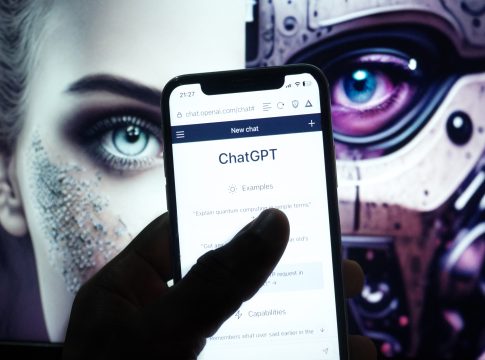The AI Influence: Is ChatGPT Changing How We Speak?
Linguistic Shifts in Academia
A recent study from the Max Planck Institute for Human Development reveals a fascinating trend: individuals—particularly in academic circles—are beginning to mirror the language styles of AI models like ChatGPT. Researchers analyzed a staggering 280,000 academic YouTube videos from over 20,000 channels and discovered that certain vocabulary choices are becoming more prevalent, suggesting a linguistic shift influenced by AI.
The study highlights a rise in the usage of words frequently found in AI-generated text, such as “meticulous,” “adept,” and “delve.” Remarkably, these terms appeared over 50% more often than expected, indicating that educated speakers are unconsciously adopting an AI-like lexicon. This phenomenon raises questions about the implications for our communication styles and emotional expression.
A Flat Linguistic Landscape
While incorporating some of these AI-driven words might seem harmless, the study suggests a deeper concern. These terms often replace more vivid and emotionally resonant language. As a result, complex arguments could transform into less engaging narratives, stripping conversations of their emotional depth and regional flair. The potential consequences could be far-reaching, leading us to a world where linguistic diversity suffers under the weight of AI’s often sterile vocabulary.
The Human-AI Interaction Dynamic
Another interesting facet of this trend is its impact on our social interactions. As we grow more accustomed to engaging with AI chatbots, there is a risk that our manners and conversational styles could suffer. If we are brusque with AI—neglecting to say “please” or “thank you”—this behavior may seep into our interactions with other humans. The result? A less personable and more transactional world.
A Double-Edged Sword
Despite these concerns, AI tools like ChatGPT can streamline the writing process, helping academics and professionals produce clear, concise text. However, reliance on these AI systems comes with the tradeoff of a potentially monotonous narrative voice. While AI assists in meeting deadlines, users must remain vigilant to preserve their unique voice and linguistic identity.
Historical Context: The Evolution of Language
This linguistic evolution isn’t new; technology has long influenced how we communicate. From the telegraph’s brevity to texting culture replete with acronyms, every advancement has shaped our language. Today, as we find ourselves emulating AI, it’s worth contemplating how these changes will define our conversations in the future.
Conclusion: Tread Carefully
As we navigate this linguistic landscape shaped by AI, it’s crucial to pay attention to our word choices. The very tools that facilitate our communication have the power to reshape it. To maintain the richness of our language, we must strive to balance the efficiency of AI with the eloquence of human expression. By consciously selecting our words and nurturing our unique idioms, we can safeguard the vibrant tapestry of human language while adapting to the AI era.

Writes about personal finance, side hustles, gadgets, and tech innovation.
Bio: Priya specializes in making complex financial and tech topics easy to digest, with experience in fintech and consumer reviews.

